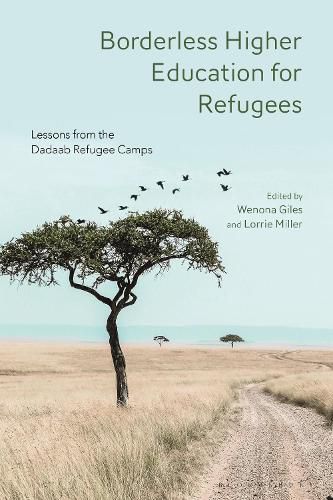Readings Newsletter
Become a Readings Member to make your shopping experience even easier.
Sign in or sign up for free!
You’re not far away from qualifying for FREE standard shipping within Australia
You’ve qualified for FREE standard shipping within Australia
The cart is loading…






Winner of the 2022 CIES Jackie Kirk Outstanding Book Award
Higher education is increasingly recognized as crucial for the livelihoods of refugees and displaced populations caught in emergencies and protracted crises, to enable them to engage in contemporary, knowledge-based, global society. This book tells the story of the Borderless Higher Education for Refugees (BHER) project which delivers tuition-free university degree programs into two of the largest protracted refugee camps in the world, Dadaab and Kakuma in Kenya. Combining a human rights approaches, critical humanitarianism and a concern with gender relations and intersecting inequalities, the book proposes that higher education can provide refugees with the possibility of staying put or returning home with dignity. Written by academics based in Canada, Kenya, Somalia and the USA, as well as NGO workers and students from the camps, the book demonstrates how North-South and South-South collaborations are possible and indeed productive.
$9.00 standard shipping within Australia
FREE standard shipping within Australia for orders over $100.00
Express & International shipping calculated at checkout
Winner of the 2022 CIES Jackie Kirk Outstanding Book Award
Higher education is increasingly recognized as crucial for the livelihoods of refugees and displaced populations caught in emergencies and protracted crises, to enable them to engage in contemporary, knowledge-based, global society. This book tells the story of the Borderless Higher Education for Refugees (BHER) project which delivers tuition-free university degree programs into two of the largest protracted refugee camps in the world, Dadaab and Kakuma in Kenya. Combining a human rights approaches, critical humanitarianism and a concern with gender relations and intersecting inequalities, the book proposes that higher education can provide refugees with the possibility of staying put or returning home with dignity. Written by academics based in Canada, Kenya, Somalia and the USA, as well as NGO workers and students from the camps, the book demonstrates how North-South and South-South collaborations are possible and indeed productive.